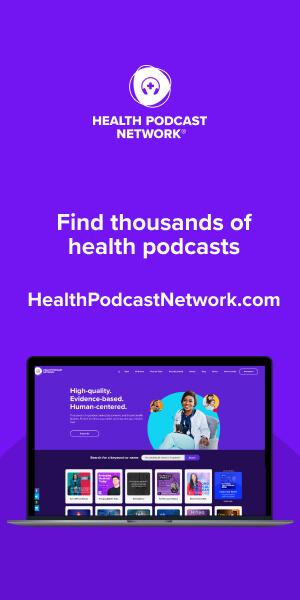Interview with Kash Kapadia, Founder and CEO of Anchor Health
At the Health 2.0 Conference in Santa Clara, CA, I had the pleasure of having coffee with Kash Kapadia, Founder and CEO of Anchor Health. He is an entrepreneurial business leader who has successfully incubated and scaled innovative digital businesses in diverse industries globally. Most recently, Kash was Vice President and General Manager of Digital Health at Stanford Health Care where he launched new patient-facing digital solutions, transformed health system operations, and spearheaded legislation to reform digital health access and reimbursement. Previously, he held leadership positions at HP, McKinsey & Company, Booz & Company, and Sun Microsystems.
Tell me about your journey and background that led you to starting Anchor Health.
Kash: Prior to starting Anchor Health, for more than a decade, I held various leadership roles focused on launching new digital businesses across industries globally. Between Stanford Health Care, HP and McKinsey, I had first hand experience with the digital disruption facing the Automotive, Banking, Consumer Goods, Healthcare, Insurance, Oil & Gas, Retail, and Utilities industries.
More so than in other industries I had worked in, it quickly became apparent to me that the health care industry is tremendously fragmented, is often adversarial across the value chain, and consumers are caught in the crossfire. As consumers, we struggle with the basics – we wait 29 days to get primary care appointments, we’re faced with higher deductibles and narrower networks, drug prices are increasing at five times the rate of inflation, and health care expenses cause about 2/3rds of U.S. bankruptcies.
And this loss of agency isn’t because consumers aren’t spending money on health care. Per the Center for Medicare and Medicaid Services estimates, households will be paying approximately $1T directly out of pocket by 2025. If you add in health care taxes, it’s even more. To put that in context, it is the size of the entire federal budget deficit of the United States.
I saw an opportunity to create a platform that could say to the consumer – we are your champion in navigating health care. We’re going to connect the dots of health care for you and make you successful in getting things done across the health care industry. Today consumers do not have a comprehensive platform focused on maximizing the value they receive for hundreds of billions of dollars they already spend. That, in essence, led to the founding of Anchor Health.
“I would highly encourage your readers to request a personal invitation via our website. For a limited time, those accepted into our private launch get our Anchor Premium membership for free.”
So tell me about Anchor and what services it provides and how it’s different from other products.
Kash: Fundamentally, our strategy puts the consumer at the center. Most health care solutions provided by employers, providers, pharmacies, and payers view the consumer through their specific lens. Naturally, these solutions provide functionality specific to their domain and focus on the respective organization’s goals. We took a contrarian approach and created a platform focused on making the consumer successful as they transacted with entities across the health care system. We can help them research conditions, find the right care, save money on prescriptions, understand a bill and so on. It’s a different way of looking at the world of health care and it gives us the power to act in the best interest of the consumer first.
Further, we made a deliberate choice to partner extensively and integrate best of breed trusted solutions into our platform. There’s been so much investment in digital health companies and initiatives in the past decade. Rather than reinvent the wheel, we are actively focused on partnering with market leaders and making their solution accessible to consumers through our platform in one place. For example, our health information comes from the NIH, medication savings from GoodRx and meditations from Headspace.
Perhaps most visible to the consumer is our differentiated user experience powered by a leading edge digital platform that blends the best of human and artificial intelligence. For example, our design focuses on guided conversations. We chose this for a couple of critical reasons. First, conversation is the most natural form of human communication where the technology is improving rapidly. Further, conversation allows us to guide a user through a logically structured journey which is well suited to health care. With each use, our platform learns and gets smarter about how to make the journey smoother for the consumer.
Finally, there are times when you need access to human experts to help resolve your toughest challenges. We’ve democratizing best-in-class patient advocacy services that are usually reserved for premium employers and making them available to our members. This is a partnership with Stanford’s CareCounsel.
Yeah, I think one of the great things about Anchor is that it’s high tech, but can also be high touch in a sense that it can actually connect you to people and services.
Kash: Absolutely. We’re big on design thinking which as you know has human needs at its core. And the design thinking process starts with empathy – caring deeply for the human that will be using the product or solution. What are their unmet needs? What are they trying to achieve? What matters to them most? The process requires you to draw inspiration from the world around you which in my case allowed me to channel my learnings from other industries into health care.
Health care is one of the most personal industries that touches the lives of individuals in moments of need and vulnerability. To not build in a human aspect to the solution would render it incomplete.
So how do you get patients engaged? What are some of the things you’ve learned being in this digital space that really worked for them, because I’ve heard a statistic recently patients who have a patient portal, maybe less than 10%, actually log in or sign on.
We’re tackling this challenge in three ways.
The engagement statistics you see usually come from portals deployed by the incumbents in health care with use cases focused on their silo. By taking a comprehensive approach across the silos of health care we dramatically expand the utility and value of our platform which results in greater adoption and engagement. The focus on championing the individual across the industry also allows us to build credibility with consumers that we have their back with no conflicts of interest.
Secondly, while we’re currently in an invitation-only private launch, we’re planning a robust free layer that will provide value to anyone who signs up. In addition to our premium memberships, we’re working hard to democratize critical functionality and make it available to all for free.
Finally, our conversational design allows us to create a powerful presence on popular consumer messaging and voice platforms that billions of people use daily. We can truly meet consumers where they are. More on that in the future.
Our first platform is a private and secure iOS app.





